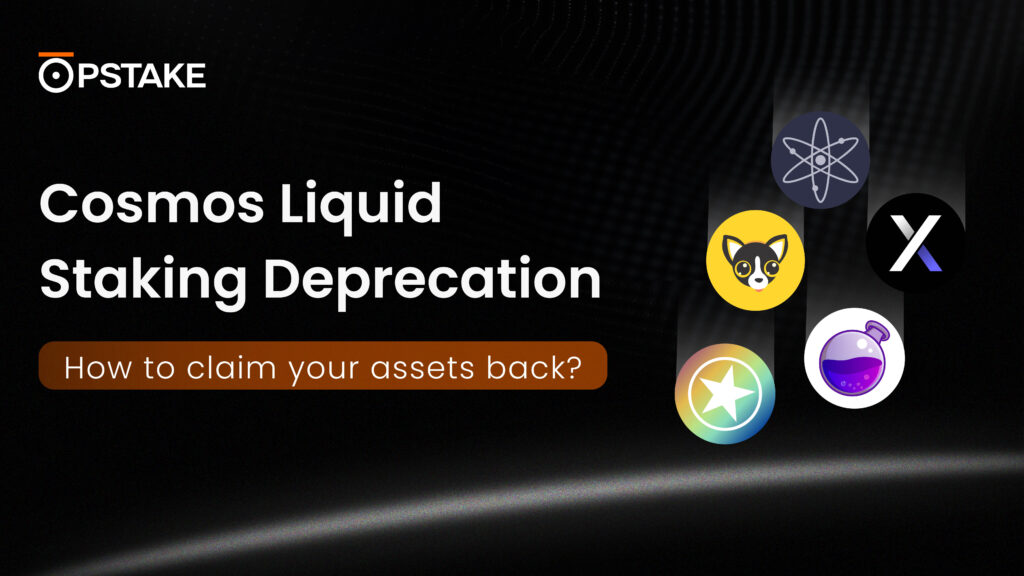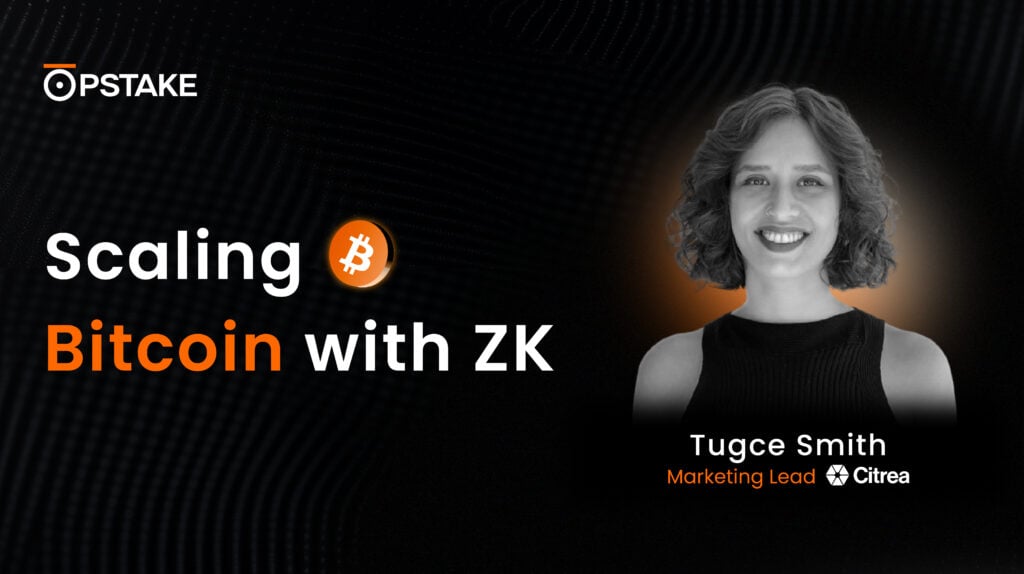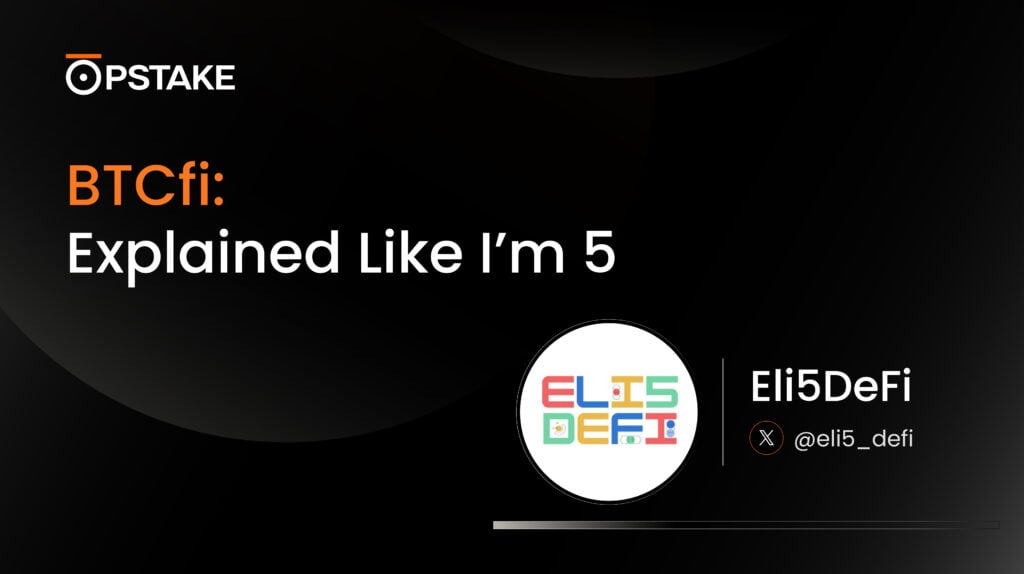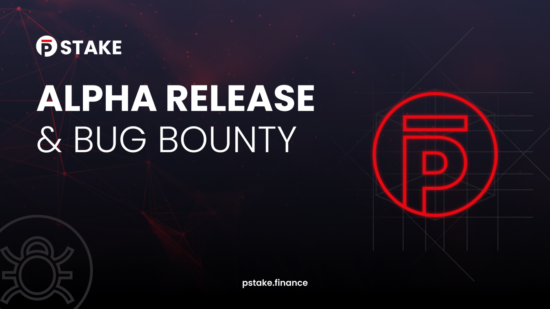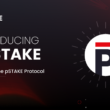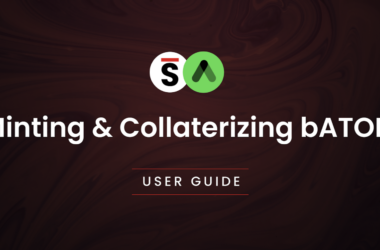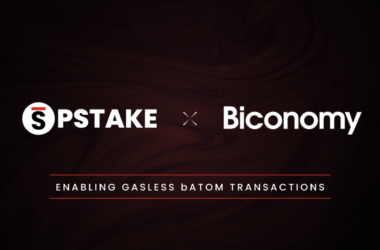We have been discussing the evolution of liquid staking and pSTAKE’s role in building a new PoS paradigm in our previous articles. We’ve made huge headway on development in recent months and we’re now ready to launch the pSTAKE Alpha release and bug bounty program, with the aim of ironing out any kinks to create a flawless user experience.
Below is a detailed guide on how to participate in the pSTAKE Alpha launch bug bounty program and earn rewards totalling $25,000.
The Alpha Launch
pSTAKE’s Alpha launch is a test launch of the pSTAKE application to enable initial users to try out the product and provide feedback on their experience. The Alpha launch is scheduled to begin 15th June, 2021, with support for Cosmos Network (ATOM).
The following functionalities will be supported for the Alpha release, with no usage restrictions:
Wrap
When a user deposits their ATOMs on pSTAKE, the pBridge facilitates the minting of an equivalent number of ERC-20 based 1:1 pegged pATOMs (barring a small fee). These pATOMs can be used to stake the deposited assets through pSTAKE or, once pSTAKE is launched on mainnet, can be used within the Ethereum DeFi ecosystem. Conversely, withdrawal requests trigger the burning of pATOM and native tokens are transferred from pSTAKE wallet to the user’s wallet.
Stake
Stake transactions performed by users on pSTAKE burn their pATOMs and mint stkATOMs, which represent 1:1 pegged ERC-20 staked representatives of the ATOMs. pSTAKE stakes the native ATOMs deposited by the user with a trusted validator pool and allows stkATOM holders to earn staking rewards in the form of pATOMs. The liquid stkATOMs can be used within the Ethereum DeFi ecosystem (once pSTAKE is launched on mainnet) to generate additional yield.
Claim Staking Rewards
stkATOM holders earn staking rewards in the form of pATOMs that can be claimed in the ‘Unclaimed Rewards’ section in the right pane of the application. In case the user unstakes the stkATOMs or transfers them to a different account, the accumulated rewards (in the form of pATOMs) are automatically claimed.
Unstake
Users can exit their staking position through an ‘Unstake’ transaction, which reduces the user’s stkATOM balance and mints exactly the same amount of pATOM (barring a minor deviation due to fees), which are locked up for the unbonding period. Additionally, the pATOMs accumulated as staking rewards are automatically claimed and added to the user’s balance.
Redeem Unbonded Tokens
The pATOMs minted during an unstaking transaction are locked up for the duration of the unbonding period (~21 days). After the completion of the unbonding period, the unbonded pATOMs can be redeemed by the user.
The Alpha release will also incorporate a bug bounty program to allow users to identify and raise issues that they might face while using the application. The bug bounty program will start at the launch time of Alpha release — 15th June, 2021 — and will run for a period of 10 days (until 25th June, 2021), at the end of which the participants who have highlighted bugs shall be rewarded based on the severity of the issues identified.
Testnets
The Alpha release will be launched for the Cosmos network with pSTAKE’s interchain bridge, pBridge, connecting a private Cosmos testnet with the Ethereum Ropsten testnet.
Cosmos Private Testnet
The private Cosmos testnet implementation can essentially be perceived as the Cosmos network on steroids. Certain parameters of the Cosmos mainnet have been modified to simulate an environment that will allow the users to put the application to test and identify the issues, if any, fairly quickly. To use the Alpha application, users will have to procure testnet ATOMs from the faucet available in the pSTAKE application.
The Cosmos network parameters modified in the private testnet are as follows:
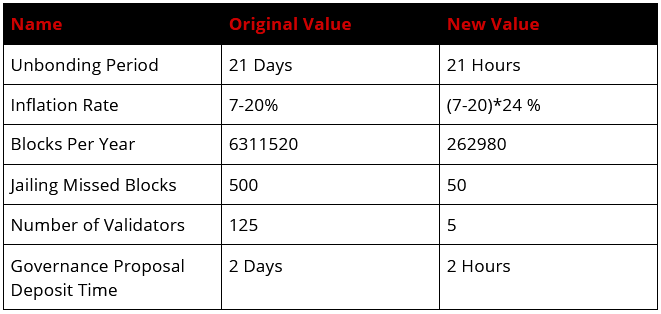
Bug Bounty Program
The Alpha launch bug bounty program aims to allow the users to identify and raise issues that they might face while using the application. The program will run for a duration of 10 days starting from the launch (15th-25th June, 12:00 UTC) with rewards totalling $25,000 to be distributed.
The criticality of potential bugs on pSTAKE have been categorized into three categories. These categories and the reward eligibilities thereof are as follows:

The verification and categorization of the issues raised will be conducted by the pSTAKE team and shall not be open to dispute. The pSTAKE team will diligently track all of the issues raised and decide reward eligibility on a case-by-case basis. The rewards for the program shall be disbursed to the eligible participants within 30 days of the program’s conclusion.
How to participate, you ask?
The procedure for participation in the bug bounty program is simple in order to allow as many users as possible to try out the application. However, users will have to fulfil some preliminary requirements for a smooth experience:
- The users must have a MetaMask wallet installed for managing Ethereum Ropsten testnet assets.
- Users must install Keplr wallet to manage Cosmos private testnet assets.
- The Keplr wallet account should be initialized. To initialize the account the user needs to carry out a ‘Receive’ transaction. A Faucet will be provided for this purpose on the pSTAKE Discord (‘bug-bounty’ channel).
- The user needs a GitHub account to be able to raise an issue.
Process
- Visit the pSTAKE Alpha release link (will go live at launch): https://alpha.pstake.finance
- Connect your MetaMask wallet and select ‘Ropsten Test Network’
- Test tokens for the Ethereum Ropsten testnet can be acquired here:
https://faucet.dimensions.network/
- You can receive test ATOMs for our private Cosmos testnet from the Faucet for the same on the pSTAKE Discord (‘bug-bounty’ channel). The application supports following functionalities for the Cosmos network Private testnet:
- Wrap / Unwrap
- Stake / Unstake
- Claim Staking Rewards
- Redeem Unbonded Tokens
- Detailed instructions on how to use individual application features will be shared on the pSTAKE website soon.
In case you find a bug
- While using the application, if you identify a bug, you can raise an issue to be eligible for the rewards.
- Note that for the bug to be eligible for rewards, it has to be reproducible, i.e. it is reproduced consistently by following a set of actions.
- If the issue is not reproducible, it can be highlighted to the team through the pSTAKE Discord (‘bug-bounty’ channel).
- Once you identify an issue, you’ll have to go to our Github repository(you’ll need a Github account for this), and visit the ‘Issues’ section.
- In the ‘Issues’ section, search active issues to confirm that the issue has not been raised by anyone else. In case of duplicates, only the first entry will be considered.
- If the issue has not been raised already, create a new issue using this guide.
- On the ‘New Issue’ page, enter the issue details using the following template:
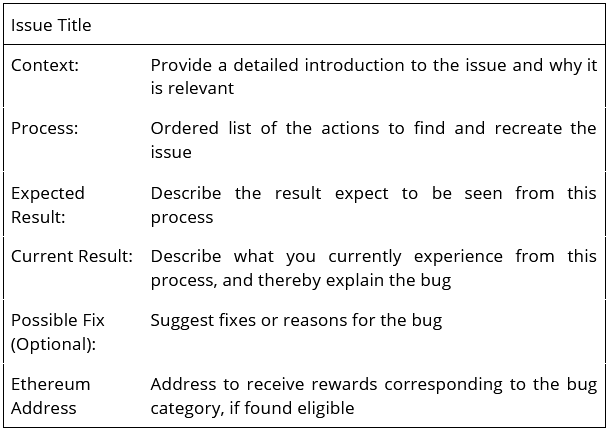
- After adding the above details, submit the issue. This will add your raised issue to the list of active issues.
- You can also add comments on existing issues (both open and closed) to highlight any further details.
Detailed documentation on the bug bounty program pertaining to the scope, rules, rewards and other resources shall be published on the pSTAKE website shortly, so stay tuned!
About pSTAKE
pSTAKE is a liquid staking protocol that unlocks liquidity for your staked assets. With pSTAKE, you can securely stake your Proof-of-Stake (PoS) assets, participate in protocol improvements and security to earn staking rewards, and receive staked underlying representative tokens (stkASSETs) which can be used to explore additional yield opportunities across DeFi.
At present, pSTAKE supports Binance Chain (BNB), Cosmos (ATOM), Persistence (XPRT), and Ethereum (ETH) networks’ native tokens, with a view to support more chains and assets in the future (SOL, and AVAX).


